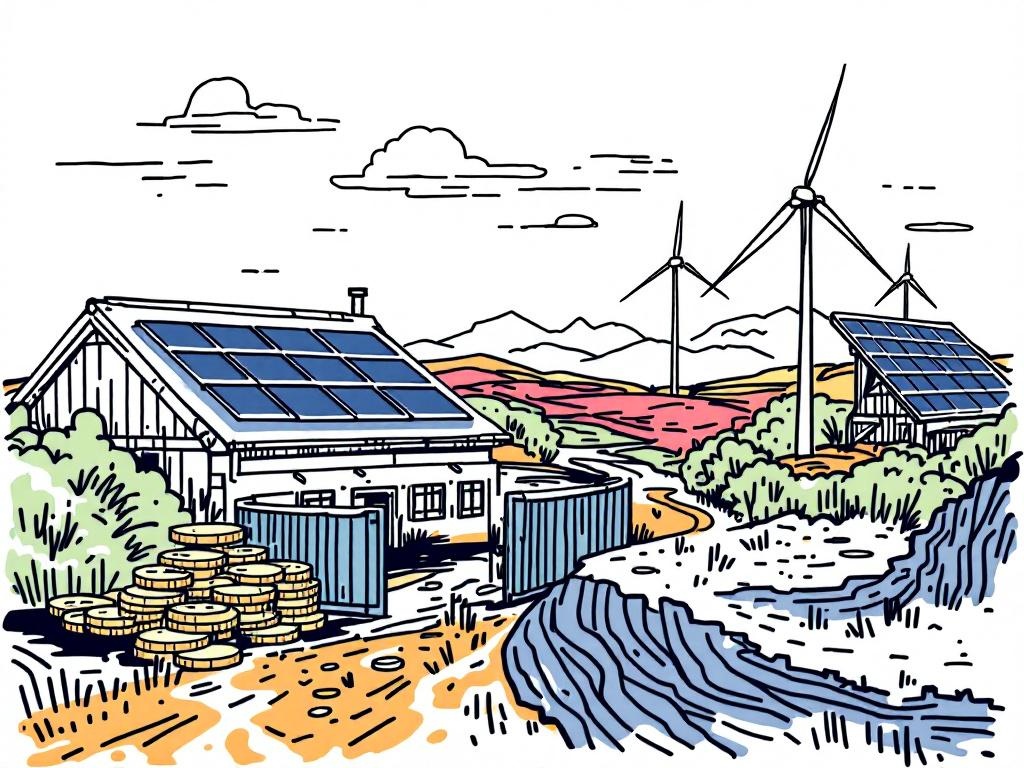Senate Tax Bill Proposal Shakes U.S. Solar Industry

Washington D.C., Tuesday, 17 June 2025.
Senate Republicans propose phasing out solar and wind tax credits by 2028, jolting U.S. solar stocks and impacting key industry players like Enphase Energy and SolarEdge Technologies dramatically.
Tax Bill Changes and Solar Industry Impacts
The unveiling of the Senate’s tax bill marks a pivotal moment for the renewable energy sector in the United States. The proposed legislation includes significant modifications to President Donald Trump’s tax plan, most notably the phasing out of tax credits for solar and wind energy by 2028. This has led to a precipitous drop in U.S. solar stocks, as investors and industry stakeholders grapple with the implications of losing financial incentives that have been instrumental in driving solar industry growth. Shares of major companies such as Enphase Energy and SolarEdge Technologies have experienced substantial declines, highlighting the market’s reaction to the proposed changes [1][2][3].
Detailed Provisions of the Tax Bill
The Senate Finance Committee’s draft proposes reducing the Investment Tax Credit and Production Tax Credit for solar and wind to 60% of their value in 2026 before completely eliminating them by 2028 [1][3]. Under President Trump’s previous legislative framework, these credits were not scheduled for phaseout until 2032. This acceleration poses a significant challenge to the sector, which has relied on these credits to support investment and expansion efforts [3]. Renewable energy incentives, a critical component of the Inflation Reduction Act, are severely impacted, potentially altering the investment landscape for new solar projects [4][7].
Economic and Market Reactions
The proposed tax reforms sparked immediate turbulence in the markets. Concurrently, Enphase Energy and Sunrun, two of the industry’s prominent players, saw stock prices plummet significantly in premarket trading. Enphase Energy recorded a 20.9% decline, while Sunrun and SolarEdge Technologies stocks plunged by over 30% each [2][5]. Analysts from Citi have responded by remaining bearish on residential solar stocks, indicating that the proposed Senate measures are more restrictive than previous versions and could hinder future growth in the renewable sector [2].
Broader Economic Implications
Beyond the immediate market impacts, the proposed tax bill suggests broader implications for the U.S. economy. The elimination of renewable energy credits could impede the nation’s transition to clean energy, with potential setbacks in reaching emissions reduction targets. Additionally, while the Senate bill maintains certain incentives for nuclear, hydropower, and geothermal energy into 2036, these adjustments may not fully offset the challenges faced by the solar industry [2][6]. The Senate aims for a swift passage of the bill ahead of a self-imposed July 4 deadline, navigating complexities such as negotiating new provisions and reconciling differences with the House version [6][7].
Sources
- ca.marketscreener.com
- ca.marketscreener.com
- www.cbsnews.com
- www.cnbc.com
- www.washingtonpost.com
- www.politico.com
- www.politico.com